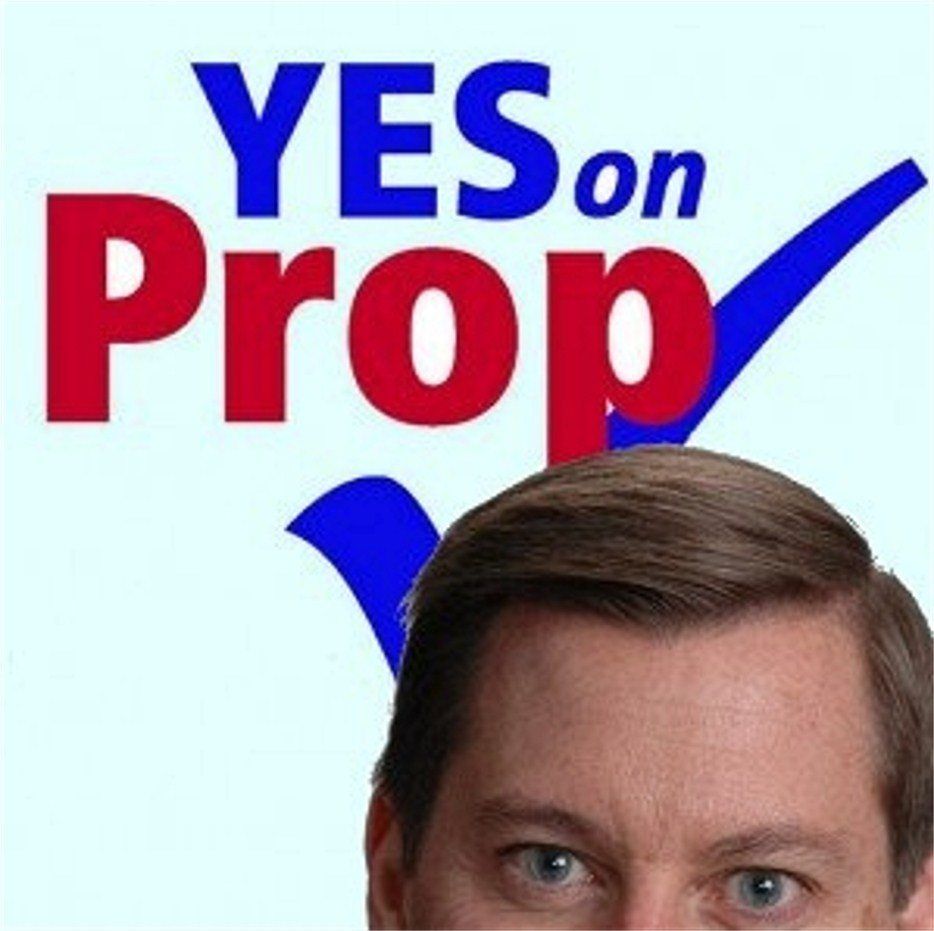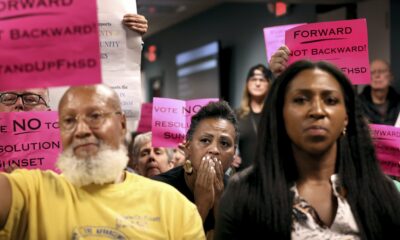Politics & Government
Tom Hiltachk, Master of Deception

Any lawyer with some experience in Sacramento politics can draft language for a statewide initiative. But crafting deceptive ballot measures that can trick people into voting against their core beliefs is nothing less than an art form.
For many years, the undisputed master of the misleading initiative has been Thomas Hiltachk. So it’s little surprise that Hiltachk is the author of Proposition 32, which promises to rid Sacramento of special interest money – but which would actually give almost complete control of state politics to corporations and the super-rich by effectively crippling the ability of unions to participate in elections and lobbying. Hiltachk has also quite possibly written into the initiative a poison pill that would shield corporations from its provisions and leave only unions to suffer the consequences if Prop. 32 passes.
A full-time political and election lawyer since 1998, Hiltachk is an old hand at drafting legislation benefiting Big Tobacco or beating back living wage campaigns. He is also the California Republican Party’s go-to legal mind for penning regressive ballot initiatives intended to give conservatives maximum political power in an otherwise majority progressive state. Like the political consultants at the Dolphin Group, Hiltachk is known for promoting “Trojan Horse” political gambits. As Hendrik Hertzberg put it in a 2007 New Yorker piece, Hiltachk and his law film Bell, McAndrews & Hiltachk, “specialize in initiatives that are the opposite of what they sound like.”
In other words, when political ideas won’t fly with voters on merit, Hiltachk and company trick Californians into voting against their wants and interests—and use every legal maneuver possible to keep voters unawares. If recent history is any indication, Hiltachk and his law firm have only one goal: Getting Republicans elected at any cost. (Hiltachk did not return repeated requests for an interview.)
Proposition 32 is just the latest in a string of initiatives authored by Hiltachk that do exactly that. In 2003, Hiltachk penned the initiative to recall then-California Governor Gray Davis. He later served as the spokesman and legal counsel for Rescue California—the committee that spent $3.6 million lobbying and signature-gathering for the initiative. When Davis lost his recall election to Arnold Schwarzenegger, Hiltachk had little trouble finding his next job—as legal counsel to the new governor.
Working for the Schwarzenegger state house, however, didn’t stop his own efforts to push California’s political agenda as far right as possible. In 2006, Hiltachk and his firm authored and pushed for the Fair Pay Workplace Flexibility Act—a progressive-sounding bit of legislation that would have increased California’s minimum wage by a pittance. Hovering just above that carrot, however, was a giant stick. The bill would have eliminated overtime pay for many workers and frozen all future minimum wage raises without the consent of two-thirds of both houses of the California legislature—a nearly impossible feat.
In 2009, Hiltachk authored and promoted California Proposition 23—which would have eliminated the protections of California’s landmark environmental bill AB 32. As with Prop. 32, Hiltachk’s measure received the backing of the Koch brothers, to the tune of $1 million, donated through their company Flint Hills Resources. It failed miserably at the polls. But that didn’t deter Hiltachk—who served as legal counsel for billionaire Meg Whitman‘s gubernatorial campaign. The first thing Whitman vowed she would do in office was to suspend AB 32.
This past March, Hiltachk’s law firm even sued to prevent Democratic 10th Congressional District candidate Jose Hernandez from listing his job title as “astronaut” on the June ballot. Hernandez, whose life could not possibly better encapsulate the American Dream, grew up the son of immigrants, working in the agricultural fields outside of Stockton, California. He didn’t learn to speak English until he was 12. Hernandez literally worked his way up from the ground to become a scientist and crew member of the 2009 flight of the space shuttle Discovery.
A reaffirming life story? Not in the world of Thomas Hiltachk, where one person’s giant step for mankind is no cause for community pride—only litigation.
Hiltachk’s influence isn’t confined to state politics. In 2007 he was the legal mastermind behind the failed Presidential Election Reform Act—which proposed divvying up California’s massive pool of electoral votes by congressional districts in presidential elections, instead of in the current winner-take-all fashion. The effort would have virtually ensured a permanent gift of 20 electoral votes to Republican presidential candidates—a larger electoral chunk than the all-important state of Ohio. For good measure, Hiltachk is also the treasurer for this year’s No on 37 campaign—an agribusiness attempt to thwart labeling of genetically modified foods.
Proposition 32’s Trojan Horse nature fits Hiltachk’s modus operandi—it’s a law masquerading as campaign finance reform that really serves as part of a national effort to gut unions and enhance the clout of the Republican Party. But this particular effort is far less precise than his previous campaigns. For instance, his decision to leave the term “corporation” undefined in the ballot language will clearly invite a host of lawsuits should the measure pass. Do LLCs count as corporations? How about non-profits?
Not to mention that Prop. 32’s proposed restrictions on union and corporate donations to individual candidates seem to conflict with the recent Supreme Court Citizens United ruling.
Hiltachk is no sloppy legal mind. One has to assume these conspicuous holes are intentional. Could it be that Prop. 32 was designed so that only a part of it could stand up to a constitutional challenge? Say, for instance, the one thing backers of Prop. 32 have historically been interested in—the end of union workers’ automatic payroll deductions?
“Prop. 32 has a separability clause,” says Alan Crowley, a labor lawyer with the legal firm Weinberg, Roger and Rosenfeld. “In theory, if a law is challenged, the parts that aren’t ruled illegal could go forward. Hypothetically that might be enforced.”
If this scenario unfolds, Prop. 32 will have the effect its backers no doubt intended—to give corporations and wealthy donors unchallenged control of state politics.
-

 Latest NewsApril 8, 2024
Latest NewsApril 8, 2024Report: Banks Should Set Stricter Climate Goals for Agriculture Clients
-

 Latest NewsApril 22, 2024
Latest NewsApril 22, 2024Oil Companies Must Set Aside More Money to Plug Wells, a New Rule Says. But It Won’t Be Enough.
-

 Striking BackMarch 25, 2024
Striking BackMarch 25, 2024Unionizing Planned Parenthood
-

 California UncoveredApril 9, 2024
California UncoveredApril 9, 2024700,000 Undocumented Californians Recently Became Eligible for Medi-Cal. Many May Be Afraid to Sign Up.
-

 Feet to the FireApril 22, 2024
Feet to the FireApril 22, 2024Regional U.S. Banks Sharply Expand Lending to Oil and Gas Projects
-

 Class WarMarch 26, 2024
Class WarMarch 26, 2024‘They Don’t Want to Teach Black History’
-

 Latest NewsApril 10, 2024
Latest NewsApril 10, 2024The Transatlantic Battle to Stop Methane Gas Exports From South Texas
-

 Latest NewsApril 23, 2024
Latest NewsApril 23, 2024A Whole-Person Approach to Combating Homelessness




















